- Home
- J. Robert Kennedy
Flags of Sin - 05 Page 11
Flags of Sin - 05 Read online
Page 11
One quarter of the world’s population was no longer willing to be ignored.
“Let the domestic and foreign reactionaries tremble before us! Let them say we are no good at this and no good at that. By our own indomitable efforts we the Chinese people will unswervingly reach our goal. The heroes of the people who laid down their lives in the People's War of Liberation and the people's revolution shall live forever in our memory!”
She thought of her grandsons, Zetan, tortured and murdered by the Kuomintang, then his brother, Zemin, killed five years ago by a warlord for supporting the Communist cause. And her adopted granddaughter, Zejian, the first to be murdered for the cause by the Kuomintang.
And she thought of her Emperor. Murdered almost seventy-five years ago.
“Hail the victory of the People's War of Liberation and the people's revolution! Hail the founding of the People's Republic of China! Hail the triumph of the Chinese People's Political Consultative Conference!”
The roar of the crowd turned the radio transmission into static, and she turned it off, the crowd’s jubilation rolling in through the open window. It lasted it seemed an eternity, and she soon dozed off, only to be awoken by the sound of a door opening. She raised her head off her shoulder, and straightened her dress before looking to see who had entered.
She smiled and tried to get up, her old legs failing her from having sat so long.
But she needn’t bother. Zedong, a smile spread across his face, closed the door and quickly strode to her chair, then dropped to his knees, taking her hands in his.
“Grandmother!”
She squeezed his hands, her smile beaming as tears filled her eyes.
“Did you hear my speech?”
She nodded.
“You made this old woman very proud.”
He flushed slightly, and looked at the floor separating them, then back at her.
“Victory has come at a heavy price.”
She nodded. “Indeed it has, but victory can be fleeting. Do not rest now, thinking your victory is permanent, founded in a base of solid concrete. You have merely poured the mixture of stone and water, and it has yet to set. Now more than ever you must do whatever it takes to protect your foundation while it solidifies, otherwise you may quickly find your enemies attacking that foundation while it remains weak in its infancy. Consolidate your power now, eliminate your enemies, and your foundation will have time to strengthen, and eventually, be built upon.”
Zedong shook his head slightly from side to side. “Grandmother, you are the wisest person I know. You understand me so well, and you understand what is necessary so well. I will not rest until my enemies are eliminated, and my family’s legacy is restored.” He raised his hands, still holding hers, to his lips. “I swear to you, to father, and to my grandfather, that China will be great again, and our family will be great again.”
Mei smiled, freeing a hand and patting his cheek.
“I saw the gold in the flag, and I was pleased.”
He smiled. “It is subtle, and its significance certainly missed to all but you and I.”
She took a deep breath, and shivered, the cold October air making its presence known. Zedong immediately rose and closed the windows, returning with a blanket.
“You may stay here as long as you wish, Grandmother. I will visit you every day, if I can.”
“No,” she replied, shaking her head. “Return me to my farm. My work is done, and it is time for this old woman to find peace at last.”
Zedong frowned. “It saddens my heart to hear you talk like that, Grandmother. You have many good years left in you.”
Mei laughed.
“Oh, my little one, you have no idea how old these bones are, and even less idea how old they feel. I am ready to move on, and rejoin my Emperor, your grandfather, and your father, in the afterlife, and watch our creation blossom under your guidance, with my fallen children and grandchildren at my side.”
A single tear rolled down Zedong’s cheek, and she wiped it away tenderly. He buried his face in her chest, and sobbed as she hadn’t seen him do since he was a little boy.
And she hugged him, as hard as she had hugged his father the day she had saved him from his enemies.
“It will be okay, little one.”
Tiananmen Square, Beijing, China
Today
“What is your business in China?”
“Pleasure,” repeated James Acton for at least the fifth time. He realized he was being interrogated, and repetition was merely a technique, but this was getting ridiculous. He was tired, he was sore, and he was fed up. He had tried to save lives, and in fact was pretty sure he had saved some, and now he was being treated like a criminal.
“So you claim to be a tourist.”
“I don’t claim to be anything, officer, I am a tourist.”
The man frowned. “You may address me as Inspector Li.” He shook his notepad at him. “I suggest you cooperate. This is not America. We do not tolerate ignorance or belligerence here.”
Acton’s heart pounded a little harder. In his encounters with authorities lately, he had usually been in countries where he could at least count on the system generally being on his side.
Except for that bit in Iran. And half the Middle East.
And that’s what he had to keep in mind. This was Communist China. This was not a friendly country. By all outward appearances they tried to look friendly and welcoming, but behind the scenes, it was graft and corruption, ruthlessness in the face of crime, and right now, he had been involved in a horrific crime.
As far as he could tell, it was the United States Ambassador to China’s motorcade that had been ambushed. Four in the lead vehicle were dead, two in the limousine, and three in the rear. As well, a large number of Chinese police were dead, along with a handful of bystanders.
He was lucky to be alive.
His instinct to help nearly got him killed, but it was his nature to not just standby. His training as a soldier in the Gulf War, his position as an archeological professor and father figure to many of his students when they went on remote dig sites, and now as someone training in martial arts and weaponry, all lead him to rush into the action to help, rather than just run in the opposite direction when someone was in distress.
And it would get him killed one day.
He looked at Laura who was being interrogated by a female officer. He caught her eye and gave her a slight smile. He didn’t wink just in case it might be misinterpreted by his interrogator.
He looked at the man and realized he was just doing his job. If he were back home, would he expect anything less? A massacre had essentially just taken place, and he was a key player.
“I’m sorry, Inspector Lee, but I’m tired, sore, and just want to get back to my hotel room.”
“Where are you staying?”
“The Hilton. Room eight-thirteen.”
“Very nice hotel. How can you afford such a thing on a teacher’s salary.”
Acton smiled slightly, knowing he had to keep calm.
“I can’t, but my fiancée can. She inherited a large sum of money from her brother when he died.”
“And her name?”
“Like I said before, Professor Laura Palmer, Head of Archaeology at the British Museum, and a tenured professor at University College London.”
“Ah yes, so you did,” said Inspector Li, flipping through his notes. He looked up at Acton. “And when you heard the gunshots, you chose to run toward them, instead of away.”
It wasn’t a question, so Acton said nothing.
Inspector Li continued to eyeball him, and when that didn’t elicit a response, he looked back at his page. “I suppose I might have done the same.” He looked at Acton. “But then again, I’m a police officer.”
Again Acton said nothing. But his mind raced. If he offered up that he was an ex-soldier, that might cause problems, since China was technically an enemy. He certainly couldn’t mention any of his recent involvement in Lond
on, Italy or Iran. And he definitely couldn’t mention the special ops training he and Laura were receiving from her ex-SAS security personnel.
But he had to say something.
“I don’t know what I was thinking. I guess I just reacted.”
Li looked at him, steadily, to the point it made Acton uncomfortable. But he refused to look away.
He was saved by another officer running up and handing the Inspector a sheaf of papers. Li thumbed through them, and looked up.
“I don’t think you are being entirely truthful with me, Professor Acton.”
Acton felt his chest tighten. He knew a lot of what he had been involved in had been covered up as best as could be expected in the press and on the Internet, but intelligence communities were another story. And the Chinese had an extensive intelligence network. They could infiltrate anywhere, and not stand out, simply by claiming to be an immigrant. Try sending a white man into China to spy.
Far more difficult.
He sometimes wondered if the Chinese military had a fifth column of troops and agitators disguised as immigrants spread throughout the Western world, just waiting to be activated, much like the Soviet sleeper agents of the Cold War.
“I’m not sure what you mean.”
“You were a soldier. You failed to mention it.”
“Ex-reservist, twenty years ago.”
“You fought in the Gulf War. Not exactly what I would call typical reservist activities.”
Acton shrugged. “Pretty much every reservist has seen combat in the past five years in my country.”
“Ah yes, America’s penchant for invading foreign countries. You should be more like us Chinese and respect people’s borders.”
“Korea and Tibet come to mind,” blurted Acton, immediately regretting it.
Li smiled. “We were invited into both those countries.”
Yes, much like Hitler was invited into Austria and Czechoslovakia.
He wanted to bring up the land disputes over islands and oil rights in the South China Sea with Japan and the Philippines among others, but this time he bit his tongue.
“You want to say something?”
Acton shook his head. “I think it’s best I shut up now.”
Li chuckled. “Very wise.” He paused, then tapped his pad on his chin. “I wonder about you. You have been very busy of late.” He shook the papers he had been handed. “You are fortunate I am a Catholic, as I am a little more trusting than some of my associates. From what I have read here, I believe you are a good man, with a penchant for being in the wrong place at the wrong time, but seem to always be on the right side of whatever is going on. My supervisor”—he nodded toward a man standing a few dozen yards away—“would insist I take you downtown, but I think you are what you say you are. A tourist.” He flipped his notebook shut and stuffed it in his shirt pocket. “You are free to go, Professor Acton. I suggest that for the remainder of your trip in China, you run away from trouble, as opposed to toward it.”
Acton smiled slightly and nodded.
“Good advice in any country, Inspector.”
Li yelled something in Chinese, and the female officer interrogating Laura nodded, then motioned for Laura to leave. She walked quickly toward Acton, who held his arm out and took her under his wing.
“What was that all about?” she asked. “I got the sense there’s something else going on here.”
“You too?”
“Definitely. When you were off doing your hero bit, I picked up a couple of papers that were blowing across the square.”
“What did they say?”
“I don’t know, but when I showed her one of the pages—the one interviewing me—she turned pale and snatched it out of my hand, burying it in her bag, and looking around as if she was afraid someone might have seen me hand it to her.”
“Did she say anything?”
“No, I asked her what was wrong, but she said ‘nothing’. The rest of the questions were pretty routine. Repetitive, but routine.”
“Yeah, me too.” Acton flagged a taxi. “Let’s get back to the hotel. We have an appointment we’re almost late for.”
Shaoshan, Hunan Province, China
August 11, 1954
Li Mei heard voices in the shadows. Who is it that disturbs me at a time such as this? It took a moment to realize she had been dozing, and her eyes were closed. The voices continued, and she listened, rather than reveal she was awake.
It was Zedong. She suppressed a smile as her heart skipped a little faster in the knowledge he had made it. And Anhong, Zedong’s child she had raised in secret now for almost twenty years. Zedong had only one son alive, at least publicly, and much to her dismay, Anqing was apparently starting to show signs of mental illness, most likely due to a severe beating he had received when only seven years old by a Shanghai policeman. The trauma over his other brothers dying seemed to have exacerbated the problem.
But she had her doubts.
The stories of his mental illness were just that—stories. She hadn’t seen any evidence of it, other than the heartfelt sorrow over losing his siblings—but if that was evidence of mental illness, then in her opinion, they were all guilty of it.
He had visited her over the years, and seemed to be a fine young man. And he had been with the family, at her side, for the past three weeks, and they had spoken often, and long, and he seemed a perfectly sane, lucid individual.
And remarkably intelligent.
His time in Paris and Moscow had served him well, and he was now a linguist, translating scientific texts for the government from Russian into Chinese. A valuable, honorable, contribution to the new empire, albeit not heroic in any sense. He shunned politics, and that may be why the rumors were being spread by Zedong’s enemies, for he had them. Many. And if they had their way, they would remove him in a heartbeat. The power struggle within the country was constant, and Zedong had had to be ruthless to retain his power, but with each passing year, his grip tightened, his opponents were crushed, and he ensured the dynasty of his grandfather continued in secret.
And with that knowledge in her bosom, she was ready to pass. It had taken longer than she had expected. She had been ready when the little one had given his momentous speech, and cried in her arms, but it had finally come. She wasn’t sure how old she was, she had long ago lost count, but according to some of her nieces and nephews who were more schooled than she was, she was almost ninety-five.
A good age to go.
She had led a full life, a happy life, one filled with love and adventure, more than any farm girl could have hoped for. She just wished that her beloved Jun could have lived longer to enjoy it with her.
Her chest heaved slightly at the thought of him, his dark, creased face, his eyes, so bright, his hair so soft to her touch. They had fallen in love on the road from Beijing, and in those desperate nights of trying to keep warm, the baby huddled between them, they had exchanged their first kiss.
She smiled as a warmth spread through her at the memory.
“I think she’s awake.”
It was Zedong.
She opened her eyes and smiled.
“Hello, little one, I’m so happy you are here.”
Zedong sat on the edge of the bed, Anhong the other, and Anqing stood at the foot. She took Zedong’s hand in hers, then looked at all three men.
“I have little time left, but before I go, I must be certain my task is complete, for I made a promise to my Emperor, and it must be kept if I am to be permitted eternal happiness in the afterlife.”
“Great-Grandmother, please don’t talk like that,” said Anhong.
She patted Anhong, the boy she had raised since he was a toddler, hiding his true identity even from him. Oh, the lies are what I most regret. It had been a life of lies, a life of hidden truths, a life of deceiving both strangers and loved ones, and a life that was near a close.
It was time for all to be revealed.
She looked at Zedong.
“It
is time to tell your son, Anqing, the truth about his family.” She looked at Anhong. “And it is time to tell your son, Anhong, the truth as well.”
Anhong’s jaw dropped, and he looked first at her, then Zedong. Zedong smiled at him, nodding.
“Yes, it is true.”
Anqing looked at her, his own jaw betraying his shock. “You mean we’re brothers?”
She was delighted by the excitement in his voice, and when she nodded, he rushed around the bed and embraced Anhong as he stood, shaking him back and forth. Anqing stepped back, his hands still on his brother’s shoulders, and smiled.
“I have a brother again,” he whispered, his voice cracking.
Anhong appeared still to be in shock. He neither smiled, nor frowned. In fact, he displayed little emotion.
“Anhong, my dear, sit with this old lady one last time.”
Anhong tore his eyes away from his newly discovered brother, and looked down at her. She beckoned him and he returned to his perch on her bedside.
“There is much more for you to learn, both of you, and I have little strength remaining. Should I not be able to finish, your father will reveal the rest. But know this before I begin. The restlessness you have always felt inside, the suspicions you have had of thinking you should be something more, something greater, are there for a reason. For you are of royal blood, and are destined to rule China.”
Anhong’s eyes were wide, and full of fear and doubt. He looked at Zedong, his father, who nodded.
“Yes, Anhong. I am the grandson of the Tongzhi Emperor, last legitimate emperor of the Qing Dynasty, and all I have done, has been to restore our family to the throne we rightfully deserve.”
There was a thump as Anqing, still standing at the side of the bed, collapsed.
Anhong was too much in shock to even notice.
And Li Mei, with the secret out, the truth revealed to all those who needed to know, slipped away into darkness, as she heard the cries of Zedong in the distance, and the shudder of a stiff wind against the old farmhouse, as Heaven came to collect her soul.

_preview.jpg) The Protocol (A James Acton Thriller, Book #1)
The Protocol (A James Acton Thriller, Book #1)_preview.jpg) Depraved Difference (A Detective Shakespeare Mystery, Book #1)
Depraved Difference (A Detective Shakespeare Mystery, Book #1) Atlantis Lost
Atlantis Lost The Tomb of Genghis Khan
The Tomb of Genghis Khan_preview.jpg) Rogue Operator (A Special Agent Dylan Kane Thriller, Book #1)
Rogue Operator (A Special Agent Dylan Kane Thriller, Book #1) Forgotten
Forgotten Keepers of the Lost Ark
Keepers of the Lost Ark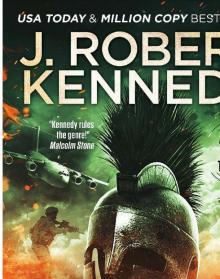 The Cylon Curse
The Cylon Curse The Colonel's Wife
The Colonel's Wife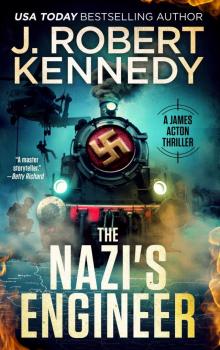 The Nazi's Engineer
The Nazi's Engineer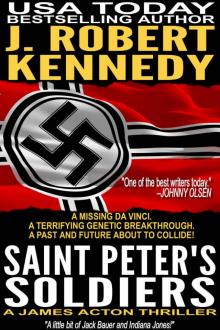 Saint Peter's Soldiers (A James Acton Thriller, Book #14)
Saint Peter's Soldiers (A James Acton Thriller, Book #14)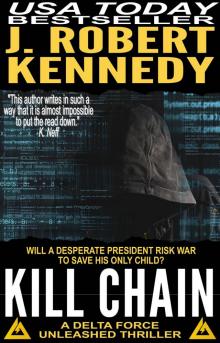 Kill Chain
Kill Chain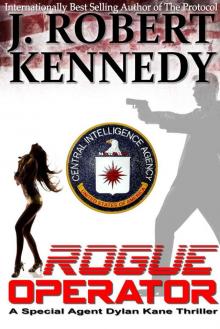 Rogue Operator
Rogue Operator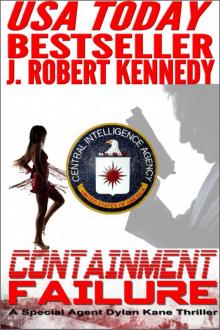 Containment Failure (A Special Agent Dylan Kane Thriller, Book #2)
Containment Failure (A Special Agent Dylan Kane Thriller, Book #2) The Lazarus Moment
The Lazarus Moment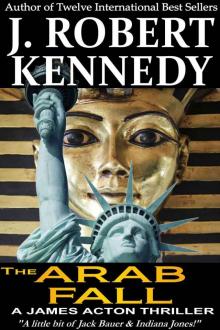 The Arab Fall (A James Acton Thriller, Book #6) (James Acton Thrillers)
The Arab Fall (A James Acton Thriller, Book #6) (James Acton Thrillers) Payback
Payback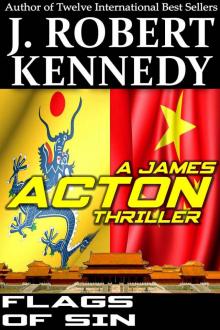 Flags of Sin - 05
Flags of Sin - 05 The Viking Deception
The Viking Deception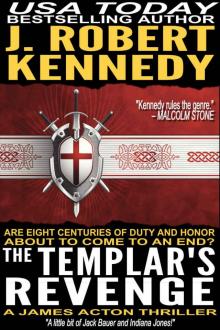 The Templar's Revenge (A James Acton Thriller, #19) (James Acton Thrillers)
The Templar's Revenge (A James Acton Thriller, #19) (James Acton Thrillers)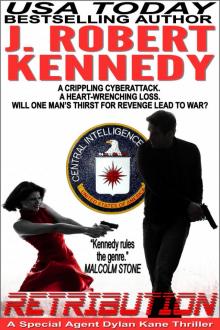 Retribution - A Special Agent Dylan Kane Thriller Book #7
Retribution - A Special Agent Dylan Kane Thriller Book #7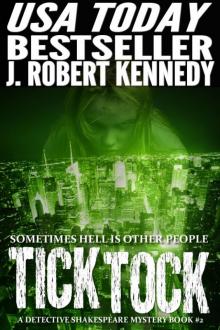 Tick Tock (A Detective Shakespeare Mystery, Book #2)
Tick Tock (A Detective Shakespeare Mystery, Book #2) Blood Relics (A James Acton Thriller, #12)
Blood Relics (A James Acton Thriller, #12) The Templar Detective
The Templar Detective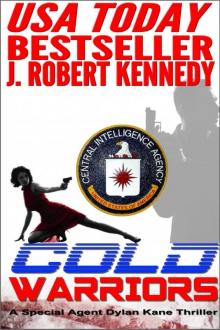 Cold Warriors (A Special Agent Dylan Kane Thriller, Book #3)
Cold Warriors (A Special Agent Dylan Kane Thriller, Book #3)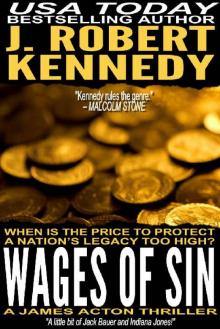 Wages of Sin (A James Acton Thriller, #17) (James Acton Thrillers)
Wages of Sin (A James Acton Thriller, #17) (James Acton Thrillers) The Templar Detective and the Parisian Adulteress
The Templar Detective and the Parisian Adulteress Pompeii's Ghosts (A James Acton Thriller, #9)
Pompeii's Ghosts (A James Acton Thriller, #9) Raging Sun (A James Acton Thriller, #16) (James Acton Thrillers)
Raging Sun (A James Acton Thriller, #16) (James Acton Thrillers)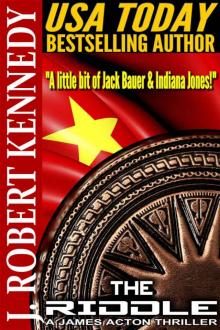 The Riddle (A James Acton Thriller, Book #11)
The Riddle (A James Acton Thriller, Book #11)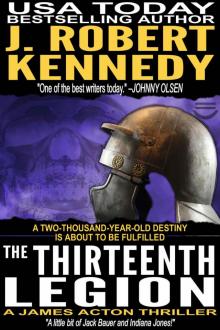 The Thirteenth Legion (A James Acton Thriller, #15) (James Acton Thrillers)
The Thirteenth Legion (A James Acton Thriller, #15) (James Acton Thrillers)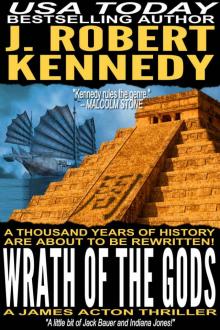 Wrath of the Gods (A James Acton Thriller, #18) (James Acton Thrillers)
Wrath of the Gods (A James Acton Thriller, #18) (James Acton Thrillers) Sins of the Titanic (A James Acton Thriller, #13)
Sins of the Titanic (A James Acton Thriller, #13) Amazon Burning (A James Acton Thriller, #10)
Amazon Burning (A James Acton Thriller, #10)